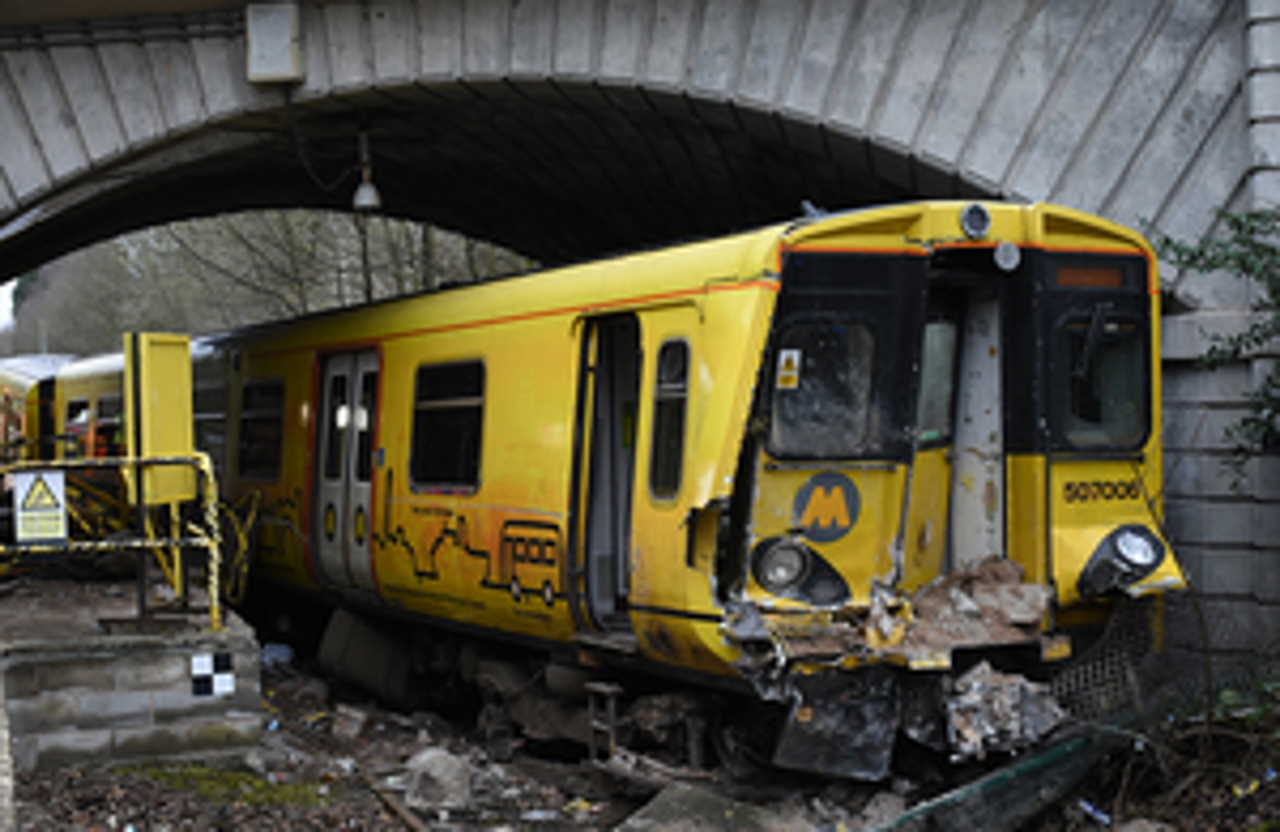The Rail Accident Investigation Branch has released its report into the accident at Kirkby station back in March 2021.
The accident occurred at 18:53 hours on Saturday the 13th of March 2021 and saw a Merseyrail train hit the buffer stop at the station.
Travelling at 41mph (66km/h) the train made its way through the platform and shortly after the driver applied the emergency brake but there was not sufficient distance remaining in order to stop the collision with the train striking the buffer at approximately 29mph (47km/h). The train finally came to rest under a bridge around 28 metres after the original buffer stop position.
The driver was taken to hospital following the accident as a precaution and was discharged the next day, no other injuries were reported by the guard or 12 passengers that were on board. The accident led to substantial damage to the station’s infrastructure and also to the front of the train and the station had to remain closed for a period of eight days whilst the repairs were made and the train put back on the tracks.
The accident took place as the driver of the train didn’t apply the brakes in time due to being distracted from his job of driving by his mobile phone and his bag falling onto the floor of the cab.
The train’s brakes were not automatically applied via engineered systems due to the conditions to allow their intervention not being met. The driver continued operating controls for two of the systems (the automatic warning system and the driver’s safety device) which prevented their activation even though the driver was not completely engaged with the task of driving the train.
A third system (the train protection and warning system) also did not activate until the driver had already applied the emergency brake. The installation of the third system met with compliance and relevant standards however it did not protect against this specific scenario.
Merseyrail and Network Rail‘s risk assessment processes did not identify the risk of the buffer stop being struck at a relatively high speed. Rail Accident Investigation Branch has noted that Merseyrail’s fatigue risk management procedure did not adhere to current industry good practice.
Had more passengers been onboard the train or the platform areas behind the buffer stop, the accident would have seen a far worse outcome. At the time of the accident, the COVID-19 pandemic saw restrictions on social contact put in place which meant that there were a reduced number of passengers.
Rail Accident Investigation Branch has made three recommendations as follows:
- The first recommendation is directed to the Rail Safety and Standards Board and relates to research into devices that monitor the alertness and awareness of drivers.
- The second recommendation is directed to Merseyrail and Network Rail and aims to bring improvements to their risk assessment process for collisions with buffer stops at terminal platforms.
- The third recommendation requires Merseyrail to improve its current fatigue management process and to follow industry good practices.
Two learning points were identified by the Rail Accident Investigation Branch the first of which is to remind train drivers of the risks created by using a mobile phone whilst driving a train. The second is to remind train operating companies that it is important to understand the limits of protection provided by the train protection and warning system regarding risks assessing terminal platforms.






Responses
I would have thought that a main recommendation should have been an absolute ban on drivers using their mobile phones while the train they are driving is moving. The three recommendations made are important, but not as important as driver distraction because of mobile phone use.